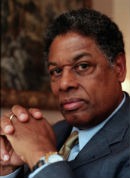Any honest man, looking back on a very long life, must admit — even if only to himself — being a relic of a bygone era. Having lived long enough to have seen both “the greatest generation” that fought World War II and the gratingest generation that we see all around us today, makes being a relic of the past more of a boast than an admission.
Not everything in the past was admirable. Poet W.H. Auden called the 1930s “a low dishonest decade.” So were the 1960s, which launched many of the trends we are experiencing so painfully today. Some of the fashionable notions of the 1930s reappeared in the 1960s, often using the very same discredited words and producing the same disastrous consequences.
The old are not really smarter than the young, in terms of sheer brainpower. It is just that we have already made the kinds of mistakes that the young are about to make, and we have already suffered the consequences that the young are going to suffer, if they disregard the record of the past.
If you want to understand the fatal dangers facing America today, read “The Gathering Storm” by Winston Churchill. The book is not about America, the Middle East or nuclear missiles. But it shows Europe’s attitudes and delusions — aimed at peace in the years before the Second World War — which instead ended up bringing on that most terrible war in all of human history.
Black adults, during the years when I was growing up in Harlem, had far less education than black adults today — but far more common sense. In an age of artificial intelligence, too many of our schools and colleges are producing artificial stupidity, among both blacks and whites.
You cannot live a long life without having been forced to change your mind many times about people and things — including in some cases, your whole view of the world. Those who glorify the young today do them a great disservice, when this sends inexperienced young people out into the world cocksure about things on which they have barely scratched the surface.
In my first overseas trip, I was struck by blatantly obvious differences in behavior among different groups, such as the Malays and the Chinese in Malaysia — and wondered why scholars who were far more well-traveled than I was seemed not to have noticed such things, and to have resorted to all sorts of esoteric theories to explain why some groups earned higher incomes than others.
There are words that were once common, but which are seldom heard any more. The phrase “none of your business” is one of these. Today, everything seems to be the government’s business or the media’s business. And the word “risque” would be almost impossible to explain to young people, in a world where gross vulgarity is widespread and widely accepted.
Back when I taught at UCLA, I was constantly amazed at how little so many students knew. Finally, I could no longer restrain myself from asking a student the question that had long puzzled me: “What were you doing for the last 12 years before you got here?”
Reading about the decline and fall of the Roman Empire, and the widespread retrogressions of Western civilization that followed, was an experience that was sobering, if not crushing. Ancient history in general lets us know how long human beings have been the way they are, and dampens giddy zeal for the latest panaceas, despite how politically correct those panaceas may be.
When I was growing up, we were taught the stories of people whose inventions and scientific discoveries had expanded the lives of millions of other people. Today, students are being taught to admire those who complain, denounce and demand.
The first column I ever wrote, 39 years ago, was titled “The Profits of Doom.” This was long before Al Gore made millions of dollars promoting global warming hysteria. Back in 1970, the prevailing hysteria was the threat of a new ice age — promoted by some of the same environmentalists who are promoting global warming hysteria today.
COPYRIGHT 2016 CREATORS.COM
 Thomas Sowell is a senior fellow at the Hoover Institution, Stanford University. Visit his site at www.tsowell.com.
Thomas Sowell is a senior fellow at the Hoover Institution, Stanford University. Visit his site at www.tsowell.com.
The views expressed in opinion articles are solely those of the author and are not necessarily either shared or endorsed by Black Community News.
 Black Community News News and Commentary for Christians
Black Community News News and Commentary for Christians




Mr. Sowell and his brilliant writings will be missed by so many who have learned so much from this man who knows humans so well!
Excellent final article. I regret it is the last! Gd bless you!
Thomas Sowell has always sought the truth, and I have tremendous respect and admiration for him.
I am really going to miss this very wise man’s editorials. I am hoping they will all start over from his beginning, and be republished.